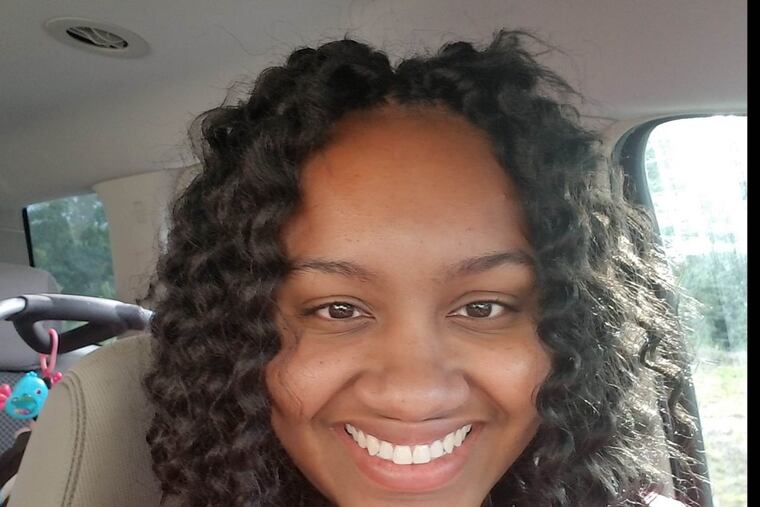Drexel program addresses trauma to help women in poverty save money - and one day create a bank
A hunger expert discovers that the key to helping women get off of welfare starts with teaching savings and dealing with the traumas that poverty creates.

India Baxley, a mother of two and a welfare recipient, wants to add an important line to her resumé:
Banker.
The Northeast Philadelphia resident works with a group of women in poverty whose aim is to create a credit union for people of limited means.
"You start a bank by discussing what you'd want to see in one," said Baxley, 25, who's studying business administration with the online University of Phoenix. "Amenities like savings, checking, money market accounts."
That a woman who receives $5,760 a year from welfare can plausibly consider a career in finance is attributable to a self-empowerment program known as the Building Wealth and Health Network and run by Drexel University's Center for Hunger-free Communities.
The network was created by Drexel professor Mariana Chilton, the area's leading expert on hunger. She regularly works with women in poverty, and has testified before Congress on poverty and hunger endured by children and families.
The network aims to break the cycle of poverty by teaching women who have nearly nothing how to save money and to understand finance. Many in the program are teaming with others who've graduated from the network's 16 three-hour sessions to explore the possibility of starting a bank specifically for people who've experienced the worst in life.
Further, the network also teaches that recipients of cash welfare — officially known as Temporary Assistance to Needy Families (TANF) — won't be successful without addressing their exposure to violence and severe adversity. Many who wind up poor report experiencing a kind of toxic stress that affects physical and mental health, academic achievement, and employment, Chilton said.
Created in 2014, the network had its first major progress report published this month in the Journal of Child and Family Studies. The results were heartening: Mothers on TANF who received both financial-empowerment education and support for exposure to trauma and abuse through the network reported less depression and reduced economic hardship.
"Results … suggest that trauma-informed approaches may create steady improvements in health and income," the report stated.
What made women feel better was simply talking with one another, joined in a burgeoning sisterhood, Chilton said, adding, "It's a kinder, more joyous way of ending poverty."
Naomi Robinson agreed.
The single mother of a 6-year-old son, Robinson, 37, of West Philadelphia, said the network helped her deal with childhood abuse that was impeding any progress she tried to make in life. "I had a life coach who said that it's OK if you're not OK some days," she said. "You don't need to be a superwoman."
Then she was taught how to create a savings account, with the network matching portions of what she put away. "It stuck with me — they teach that you pay yourself first by putting it into a savings account," she said. "Then, always do it."
Robinson is now a home health aide. Her salary keeps her in poverty, but above welfare levels. And she's saved some money with her side job: selling dinners for people in the neighborhood and on the web.
Falguni Patel, director of the network, said it emphasizes that women foster side-hustle businesses: "You always want to find ways to make money."
People keeping an eye on Chilton's enterprise are impressed.
"She's had some success, in large part because of the peer-to-peer support on trauma," said Tamila Lay, director of the Bureau of Employment programs for the Pennsylvania Department of Human Services. She added that the program could be adapted as a model for similar efforts statewide if successes continue.
Patrick Clancy, president and CEO of Philadelphia Works, a nonprofit that funds and oversees employment training, agreed that "the thing that makes the network work best is the relationships the ladies have. It's incredible what their support means to each other."
Philadelphia Works is the major funder of the network, contributing $351,800. More funders include the Annie E. Casey Foundation, the Claneil Foundation, and others.
The network, which has enrolled nearly 400 women since 2014, is eager to expand into banking.
It still needs an investor to come up with around $500,000 to get it going, Chilton said. "It's not real yet, but it's a very tangible goal," she added.
Stephanie Sakho, 28, a former welfare recipient and a network graduate, said she and other women meet three times a month to discuss creating the bank.
"If we can help people with not-great credit get affordable mortgages, it could help so much," said Sakho, a divorced assistant teacher and mother of two from Southwest Philadelphia. She started a T-shirt company and is studying public health at the online Southern New Hampshire University.
"It all started with the network, helping me with financial literacy and dealing with my emotional state," Sakho said. "It has changed my life."